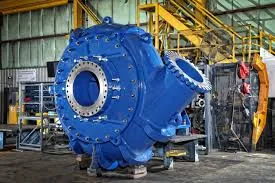English
- Afrikaans
- Albanian
- Amharic
- Arabic
- Armenian
- Azerbaijani
- Basque
- Belarusian
- Bengali
- Bosnian
- Bulgarian
- Catalan
- Cebuano
- Corsican
- Croatian
- Czech
- Danish
- Dutch
- English
- Esperanto
- Estonian
- Finnish
- French
- Frisian
- Galician
- Georgian
- German
- Greek
- Gujarati
- Haitian Creole
- hausa
- hawaiian
- Hebrew
- Hindi
- Miao
- Hungarian
- Icelandic
- igbo
- Indonesian
- irish
- Italian
- Japanese
- Javanese
- Kannada
- kazakh
- Khmer
- Rwandese
- Korean
- Kurdish
- Kyrgyz
- Lao
- Latin
- Latvian
- Lithuanian
- Luxembourgish
- Macedonian
- Malgashi
- Malay
- Malayalam
- Maltese
- Maori
- Marathi
- Mongolian
- Myanmar
- Nepali
- Norwegian
- Norwegian
- Occitan
- Pashto
- Persian
- Polish
- Portuguese
- Punjabi
- Romanian
- Russian
- Samoan
- Scottish Gaelic
- Serbian
- Sesotho
- Shona
- Sindhi
- Sinhala
- Slovak
- Slovenian
- Somali
- Spanish
- Sundanese
- Swahili
- Swedish
- Tagalog
- Tajik
- Tamil
- Tatar
- Telugu
- Thai
- Turkish
- Turkmen
- Ukrainian
- Urdu
- Uighur
- Uzbek
- Vietnamese
- Welsh
- Bantu
- Yiddish
- Yoruba
- Zulu
Telephone: +86 13120555503
Email: frank@cypump.com
Oct . 09, 2024 13:52 Back to list
vacuum pump for slurry tanker
Vacuum Pump for Slurry Tankers An Essential Component in Modern Agriculture
In the world of modern agriculture, efficiency and productivity are paramount. As farmers strive to maximize yields while minimizing environmental impact, advanced technologies are being increasingly adopted. One such technology that has become particularly essential is the vacuum pump for slurry tankers. Slurry tankers play a critical role in the transportation and application of organic fertilizers, such as manure, ensuring that nutrients are effectively utilized without causing harm to the ecosystem.
Understanding Slurry Tankers
Slurry tankers are specialized vehicles designed to transport liquid manure or slurry from a source, such as a farmyard or a biogas plant, to a location where it can be applied to fields as fertilizer. The slurry, a mixture of water, manure, and other organic materials, requires careful handling to maintain its quality and prevent nutrient loss. The vacuum pump is instrumental in this process, providing the mechanical power needed to load, transport, and unload the slurry efficiently.
The Role of Vacuum Pumps
A vacuum pump operates by creating a negative pressure environment, which allows for the easy extraction of slurry from storage tanks or lagoons. This is achieved through a series of interconnected hoses and valves, which facilitate the smooth transfer of the slurry into the tanker. The advantages of using a vacuum pump are numerous
1. Efficiency Vacuum pumps significantly reduce the time required to load and unload slurry. This efficiency is crucial during busy farming periods, such as planting or harvesting, when time is of the essence.
2. Minimizing Odors The vacuum mechanism helps to contain odors by reducing the exposure of slurry to the open air. This not only improves the working environment for farmers but also minimizes the impact on surrounding communities.
3. Controlling Nutrient Loss By rapidly removing slurry from the source, vacuum pumps help to prevent the loss of valuable nutrients, such as nitrogen, which can evaporate if left exposed to the atmosphere for extended periods.
4. Versatile Application The use of vacuum pumps allows for the transportation of slurry over considerable distances. This means that farms can operate more flexibly, applying nutrients where they are most needed, regardless of the proximity to the storage facilities.
vacuum pump for slurry tanker

Innovations in Vacuum Pump Technology
As agricultural practices evolve, so too does vacuum pump technology. Modern vacuum pumps are designed with advanced features that enhance performance and durability. For example, many contemporary models are equipped with
- Automated Controls These systems allow for easier operation, reducing the need for manual oversight and minimizing the risk of human error.
- Energy Efficiency Newer pumps are designed to be more energy-efficient, which not only reduces operational costs but also lowers the carbon footprint of farming activities.
- Integrated Filtration Systems This innovation helps to maintain pump performance by preventing clogging and reducing maintenance needs, thereby extending the lifespan of the equipment.
Environmental Considerations
The use of vacuum pumps in slurry tankers is not just about efficiency; it's also about sustainability. Properly managed slurry applications can significantly reduce the reliance on chemical fertilizers, leading to healthier soil and decreased water pollution from runoff. By utilizing organic fertilizers effectively, farmers contribute to a more sustainable agricultural model that promotes biodiversity and soil health.
Conclusion
In summary, vacuum pumps for slurry tankers are an essential innovation in the agricultural sector. They facilitate the efficient and sustainable management of organic fertilizers, which is vital for modern farming practices. As technology continues to advance, these pumps will undoubtedly play an even greater role in promoting efficiency and environmental stewardship in agriculture. For farmers looking to enhance productivity while minimizing their ecological footprint, investing in high-quality vacuum pump systems should be a top priority. The integration of this technology not only supports better farming practices but also strengthens the overall sustainability of the agricultural industry, paving the way for a greener future.
-
ISG Series Vertical Pipeline Pump - Chi Yuan Pumps Co., LTD.|Advanced Hydraulic Design&Energy-Efficient Solutions
NewsJul.30,2025
-
ISG Series Vertical Pipeline Pump - Chi Yuan Pumps Co., LTD.
NewsJul.30,2025
-
ISG Series Vertical Pipeline Pump - Chi Yuan Pumps Co., LTD.|energy-efficient fluid handling&industrial durability
NewsJul.30,2025
-
ISG Series Vertical Pipeline Pump - Chi Yuan Pumps | Advanced Engineering&Industrial Efficiency
NewsJul.30,2025
-
ISG Series Pipeline Pump - Chi Yuan Pumps | High Efficiency, Energy Saving
NewsJul.30,2025
-
ISG Series Vertical Pipeline Pump-Chi Yuan Pumps|High Efficiency&Reliable Performance
NewsJul.29,2025










